Pezeshkian: Iran-Russia strategic partnership deal significant manifestation of mutual cooperation
Iranian President Masoud Pezeshkian says the Comprehensive Strategic Partnership agreement signed between Iran and Russia is a significant manifestation of mutual cooperation between the two countries.
Pezeshkian made the remark on Tuesday evening during a meeting with Alexey Overchuk, Deputy Prime Minister of Russia, who traveled to Tehran to attend the third Caspian Economic Forum, a two-day event that aims to enhance economic and commercial cooperation between the Caspian Sea littoral states.
The Iranian president described the signing of the Comprehensive Strategic Partnership agreement between the Islamic Republic of Iran and the Russian Federation as one of the most significant manifestations of collaboration between the two countries, stressing that “the implementation of the deal must be seriously pursued by the officials of both nations.”
Pezeshkian assessed Iran-Russia bilateral cooperation in the fields of energy, industry, transportation, and trade as highly positive, noting that “regional and international organizations, including the Eurasian Economic Union (EAEU), BRICS, and the Shanghai Cooperation Organization (SCO), have also opened new avenues for joint cooperation.”
He also expressed hope that by taking advantage of such opportunities, both nations would reap the benefit.
Overchuk, for his part, conveyed the warm greetings of Russian Prime Minister Mikhail Mishustin and Russian President Vladimir Putin to Pezeshkian, expressing appreciation for Iran's successful holding of the Caspian Economic Forum.
Overchuk also expressed Moscow's satisfaction with the signing of the Comprehensive Strategic Partnership agreement with Tehran.
He noted that “interactions and cooperation between the two countries have significantly increased since the agreement’s signing, with a rise in diplomatic exchanges serving as a key indicator of the development.”
Providing a report on the discussions and topics addressed at the Caspian Economic Forum, Overchuk emphasized that the Caspian Economic Forum provides an excellent opportunity for the goal-oriented promotion of relations among the Caspian littoral states.
The deputy prime minister of Russia also described the exhibition showcasing Iran’s achievements and capabilities as a symbol of the country's remarkable advancements in various fields, including medicine and healthcare.
Overchuk added that sharing such capabilities with other countries could open significant doors for Iran’s economy.
Iran and Russia, as two close and strategic allies, have over the past years deepened relations in various fields, despite heavy Western sanctions.
In 2001, Tehran and Moscow signed a long-term cooperation deal, officially known as the Treaty of the Foundation of Mutual Relations and the Principles of Cooperation. It was initially set for 10 years but was extended twice up until 2026.
In January, the presidents of Iran and Russia, Masoud Pezeshkian and Vladimir Putin, signed a comprehensive strategic partnership agreement for long-term cooperation. Both presidents hailed the agreement as a new chapter in relations between the two countries.
Speaking at a joint press conference in Moscow following the signing event, Pezeshkian said the agreement will open a new chapter in relations between the two countries in all arenas, notably in the economic sector.
Putin, for his part, placed a premium on the expansion of trade ties with Iran and noted that in talks with Pezeshkian, the two sides discussed ways to increase trade exchanges.
Iran, Qatar say keeping regional peace is shared responsibility
AFC Futsal Asian Cup 2026: Iran lifts championship trophy for 14th time
VIDEO | Trump’s Iran strategy: All bluster, no exit
Netanyahu’s son had violent confrontation with him, ex-bodyguard reveals
US, Israel, booed at Winter Olympics opening ceremony in Milan
Iran FM says venue of next round of nuclear talks with US could change
Iran riots and info war: When the ‘dead’ came back to debunk their own death stories
Gaza hospitals struggle to provide care to those waiting: Health ministry


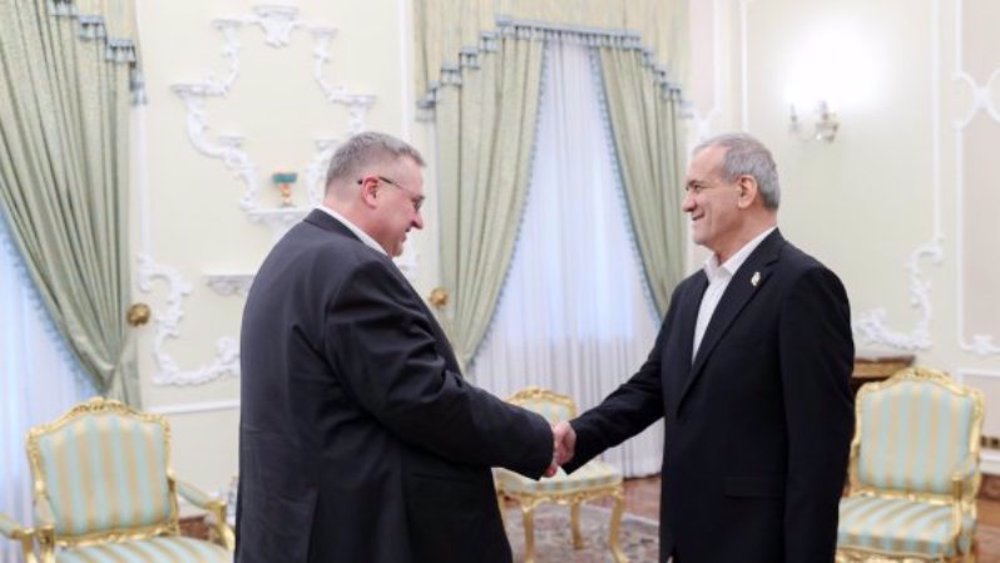
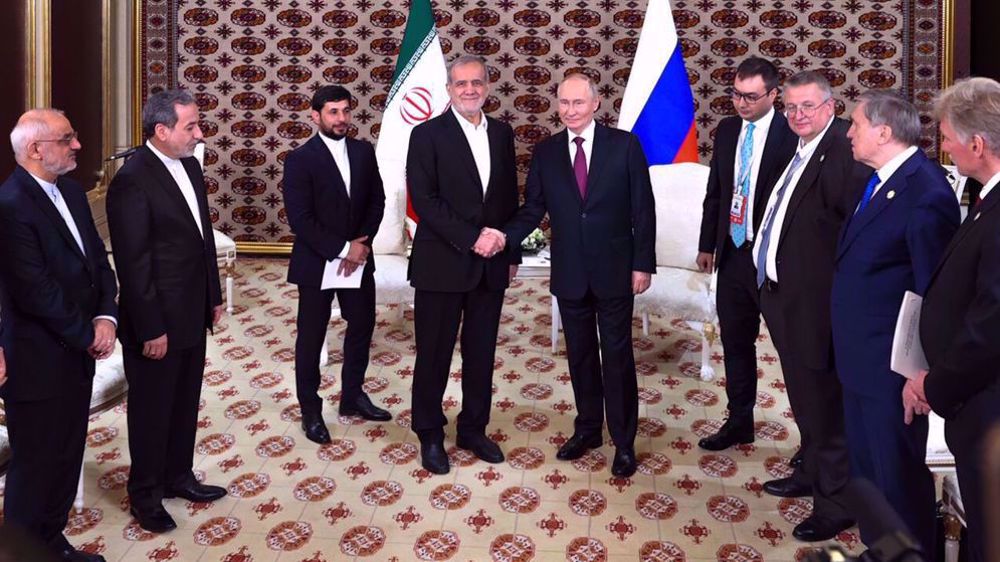
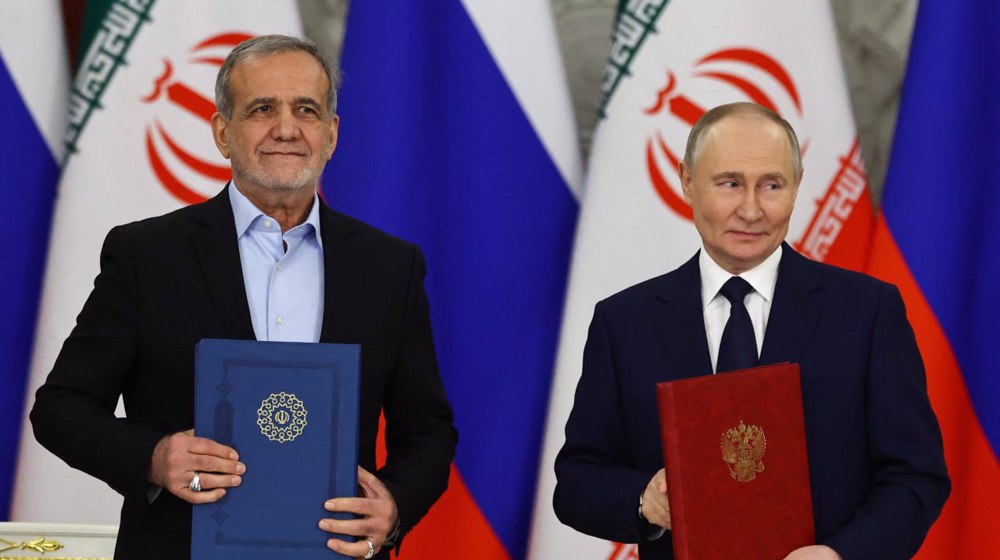
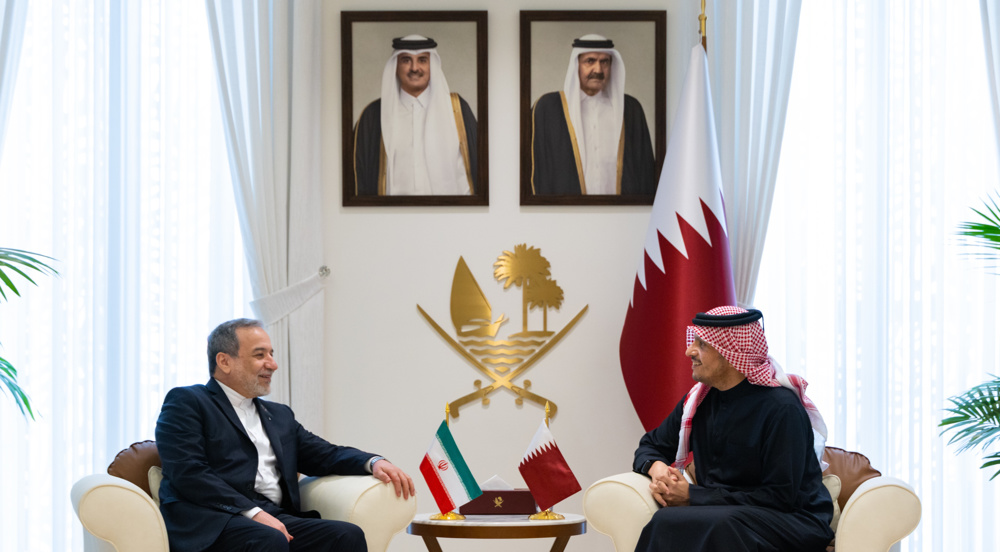
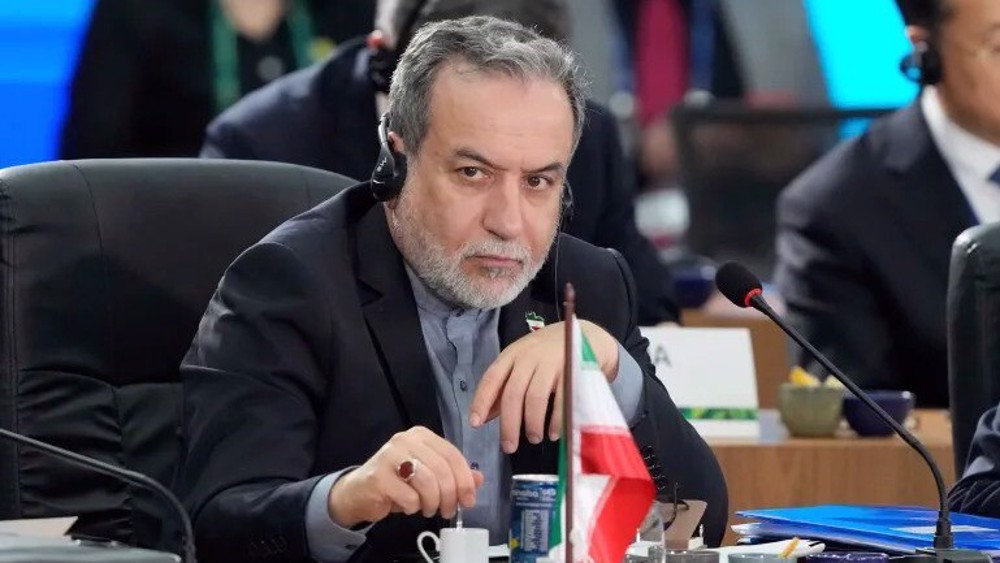
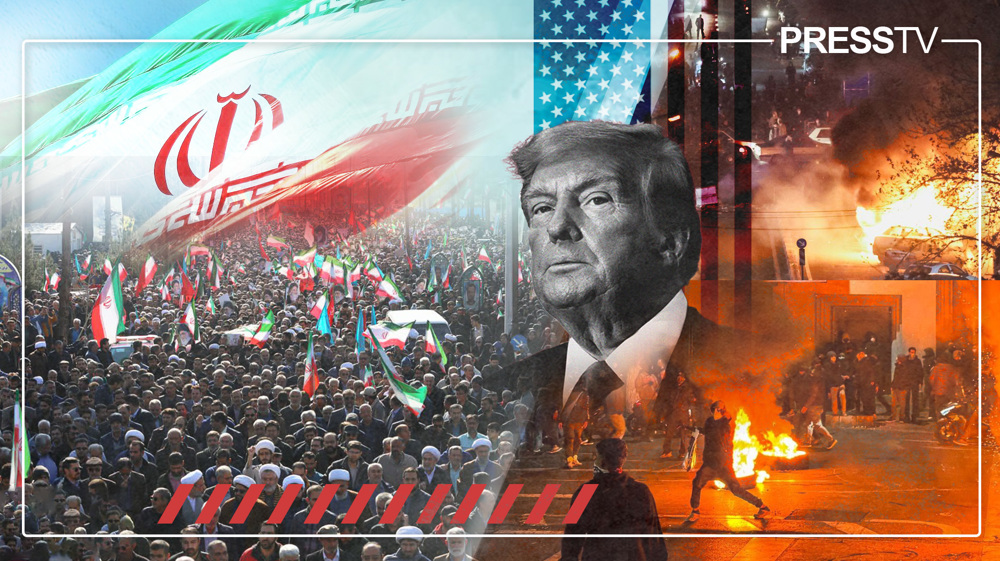




 This makes it easy to access the Press TV website
This makes it easy to access the Press TV website